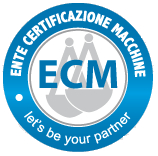Faced with this background European Commission Vice President Antonio Tajani, in charge of entrepreneurship policies, will visit Greece tomorrow to discuss how EU instruments to assist SMEs could be better used to help Greece to restore its economy.
In this context, the Greek Prime Minister Lucas Papadimos and Antonio Tajani will be key note speakers at the conference "Growth in Greece: SMEs and entrepreneurship in the Europe 2020 strategy" which will take place in Athens tomorrow.
The conference will establish the state of play on key drivers of growth, such as access to finance, reforming the business environment, export facilitation and EU support to entrepreneurship. At the same time it serves as a networking event that will seek to identify actions for concrete follow-ups in the sectors of food processing, information technologies, energy, tourism and pharmaceuticals.
In this context, success stories by Greek companies in various sectors that are strategic for the Greek economy will be reviewed providing a living proof that it is possible to grow and strive in the current conditions. For example, new enterprises were set up following traineeships in companies in other EU Member States under the Erasmus for Young Entrepreneurs programme or following the assistance of the network of Women Entrepreneurship Ambassadors.
The crucial role of SMEs in the Commission communication
The Communication points out, that over €4 billion is available in liquidity assistance for SMEs from the EU structural funds, in the form of financial engineering instruments and grants. In addition, a new SME Guarantee Fund has been set up with € 500 million from the EU structural funds, which could be multiplied to release a further € 1 billion in loans from the EIB to Greek banks, for on-lending to Greek SMEs. However, at present, this money is not reaching Greek SMEs because of reduced demand for investment, the high risk associated with loans for SMEs in the present circumstances and consequently the difficulty SMEs have in securing the necessary co-financing from the banks.
The Communication demands that the Greek banking sector and administration should speed up disbursements of the € 4bn already available for SME funding in the next 8 months. The EIB should disburse € 600 mio of loans to Greek banks for SMEs and a further € 400 mio by the end of 2013. Increased financial support should also be given to entrepreneurship training (with a focus on new innovative products and services), including mentoring, coaching and consultancy.
The role of SMEs in Greece
In 2010 there were 742 600 SMES in Greece with 2.512.493 employees, which is more than 85% of total employment, well above the EU average. Greece has a very high share of SMEs, particularly micro enterprises, compared to the EU average. The importance of Greek micro enterprises is also reflected in their share of employment and value-added creation, with more than one in two Greeks working in the non-financial sector employed by a micro enterprise.
The contribution of Greek SMEs to value added also vastly exceeds the EU average (35.3% vs. 21.8%). In fact, large enterprises, accounting for only 14% of all jobs in Greece (EU average: 33%) still manage to create more than 28% of total value added, suggesting that the productivity of Greek micro enterprises is relatively low. Greek SMEs employ only 2.9 persons on average, much less than the EU average of 4.2 persons.
In spite of the importance of the tourism sector for the Greek economy, the SME services sector is actually smaller in Greece than the EU average (34% vs. 44%) in terms of number of enterprises. The same applies to SME employment and value added creation in the services sector. On the other hand, Greek SMEs seem to be proportionally more active than their EU peers in trade, with 42% of all Greek SMEs active in this sector (EU average: 31%).
The total number of Greek SMEs has steadily fallen over the last few years until 2010, meaning that in absolute terms, there were approximately 30 000 fewer enterprises in 2010 than in 2003. The trend is similar when looking at employment in the Greek SME sector, which lost more than 135 000 jobs in the same period. The decline in terms of value added has also been pronounced.





